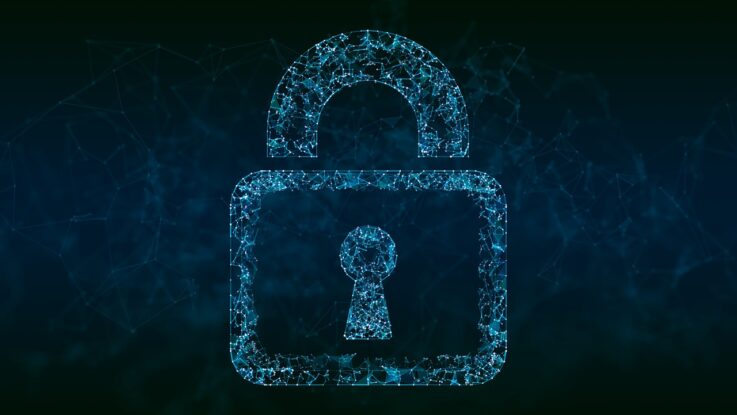
SAN FRANCISCO, May 9, 2023 /PRNewswire/ — Delinea, a leading provider of solutions that seamlessly extend Privileged Access Management (PAM), today announced findings from a global survey of over 2,000 IT Security Decision Makers (ITSDMs) revealing the impact of misalignment between the cybersecurity function and wider business.
Asked about the Board and C-Suite’s understanding of cybersecurity across the organization, only 39% of respondents think their company’s leadership has a sound understanding of cybersecurity’s role as a business enabler. Over a third (36%) believe that it is considered important only in terms of compliance and regulatory demands, while 17% said it is not seen as a business priority.
The disconnect between business and security goals appears to have caused at least one negative consequence to 89% of respondents’ organizations, with more than a quarter (26%) also reporting it resulted in an increased number of successful cyber-attacks at their company.
The impact of misaligned goals on cybersecurity was wide-ranging as it contributed to delays in investments (35%), delays in strategic decision making (34%), and unnecessary increases in spending (27%).
There were also consequences for the individuals themselves, with 31% of respondents reporting it impacted the whole security team in terms of stress. Furthermore, global economic uncertainty has worsened the situation with half of those surveyed (48%) stating that aligning cybersecurity and broader business goals is becoming more difficult to achieve as a result.
Metrics and processes don’t focus on business outcomes
Structural processes are key to aligning goals and, encouragingly, the survey revealed that most security teams (62%) meet regularly with their business counterparts at the highest level. Additionally, 54% of companies have also embedded security team members within business functions. However, the research showed there is still room to improve, as less than half of organizations (48%) are documenting policies and procedures to facilitate alignment, and a further third of all respondents (33%) reported that alignment is ad hoc and only ‘happens when needed.’
The report also brought to light that metrics used to measure and demonstrate the value that cybersecurity delivers are still strictly linked to technical or activity-based figures. For example, the number of prevented attacks (31%) was cited as the most important measure of success, followed by meeting compliance objectives (29%) and reducing costs of security incidents (29%).
“Cyber security can be a huge business enabler, but this research reflects that there is still some work to do at the board level in shifting mindsets. Executive leaders need to think of cybersecurity not only in terms of ticking the compliance box or protecting the company, but also in terms of the value it can deliver at a more strategic level,” said Joseph Carson, Chief Security Scientist and Advisory CISO at Delinea.
Making the business case to the board: gaps in ITSDM skillsets and changing lines of reporting
Building out business skillsets may provide the path to better alignment, however respondents listed technical skills as the most valuable for cybersecurity leaders to possess. These are rated above skills such as communication, collaboration, business acumen, and managing people.
Nearly a third (31%) believed that making the business case to their Board and C-Suite was a gap in their own skillset while communication skills were recognized as an area for improvement by 30% of respondents.
Aligning goals also involves reviewing the reporting lines and CEO-level visibility. However, the Delinea survey suggests that there is little appetite for change in reporting structures, as only 27% of ITSDMs believe the CISOs or the most senior cybersecurity leaders should report to the CEO to best align cybersecurity with the overall goals of the business.
“Alignment between cybersecurity and business goals is essential for success. This research clearly highlights the negative consequences when teams’ objectives aren’t fully in sync. Ensuring common agreement across business functions is vital and there is a real value in metrics that not only measure security activity, but which also demonstrate the impact on business outcomes,” Carson added. “Communication is key, and while strong technical skills are still important, security leaders need the ability to communicate, influence and present the value they add to business outcomes more frequently than ever. Security leaders that demonstrate this mix of skills, and that have the same end goal in sight as the business, are a force to be reckoned with.”
For more information, insights, and guidance, download a complimentary copy of the full report at https://delinea.com/resources/aligning-cybersecurity-and-business-outcomes
Notes to Editors
The results are from an online survey Sapio Research fielded on behalf of Delinea during March 2023. 2,007 IT and security professionals in 23 countries responded, representing a cross-section of decision makers.
About Delinea
Delinea is a leading provider of Privileged Access Management (PAM) solutions for the modern, hybrid enterprise. The Delinea Platform seamlessly extends PAM by providing authorization for all identities, granting access to an organization’s most critical hybrid cloud infrastructure and sensitive data to help reduce risk, ensure compliance, and simplify security. Delinea removes complexity and defines the boundaries of access for thousands of customers worldwide. Our customers range from small businesses to the world’s largest financial institutions, intelligence agencies, and critical infrastructure companies. Learn more about Delinea on